Global Careers Events - Pitching Your Employability, in China.
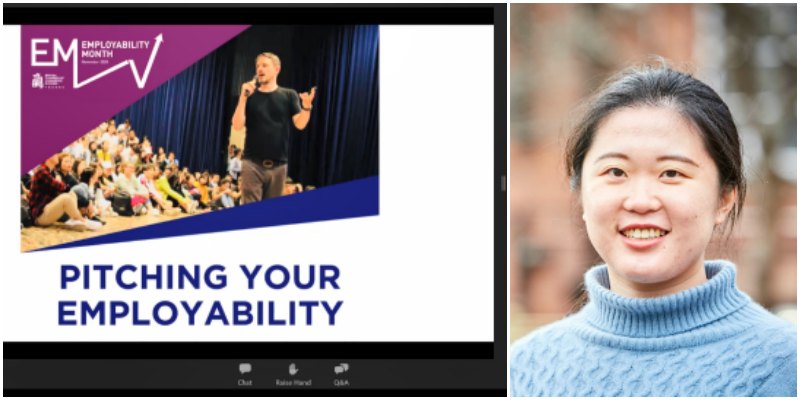
This highly interactive webinar is the first workshop organised by the British Chamber of Commerce in China to help students better connect with the professional world, which is exclusively open to University of Leeds students alumni. This webinar is also the last one of the series of the events focusing on the job opportunities in China, marking the end of the diverse two-week events.
The guest speaker of this webinar is Martin Barnes, a pitching coach and consultant who has a 20-year experience of teaching “pitching skills”, which are storytelling skills, of all different levels in both China and the UK. During the webinar, he mainly talked about how to earn employers’ awareness through effective storytelling, or “pitching skills”. He emphasized the importance of the skills and introduced a story structure which can be used for engaging social media posts, an intriguing personal statement on the CV and an impressive response in interviews.
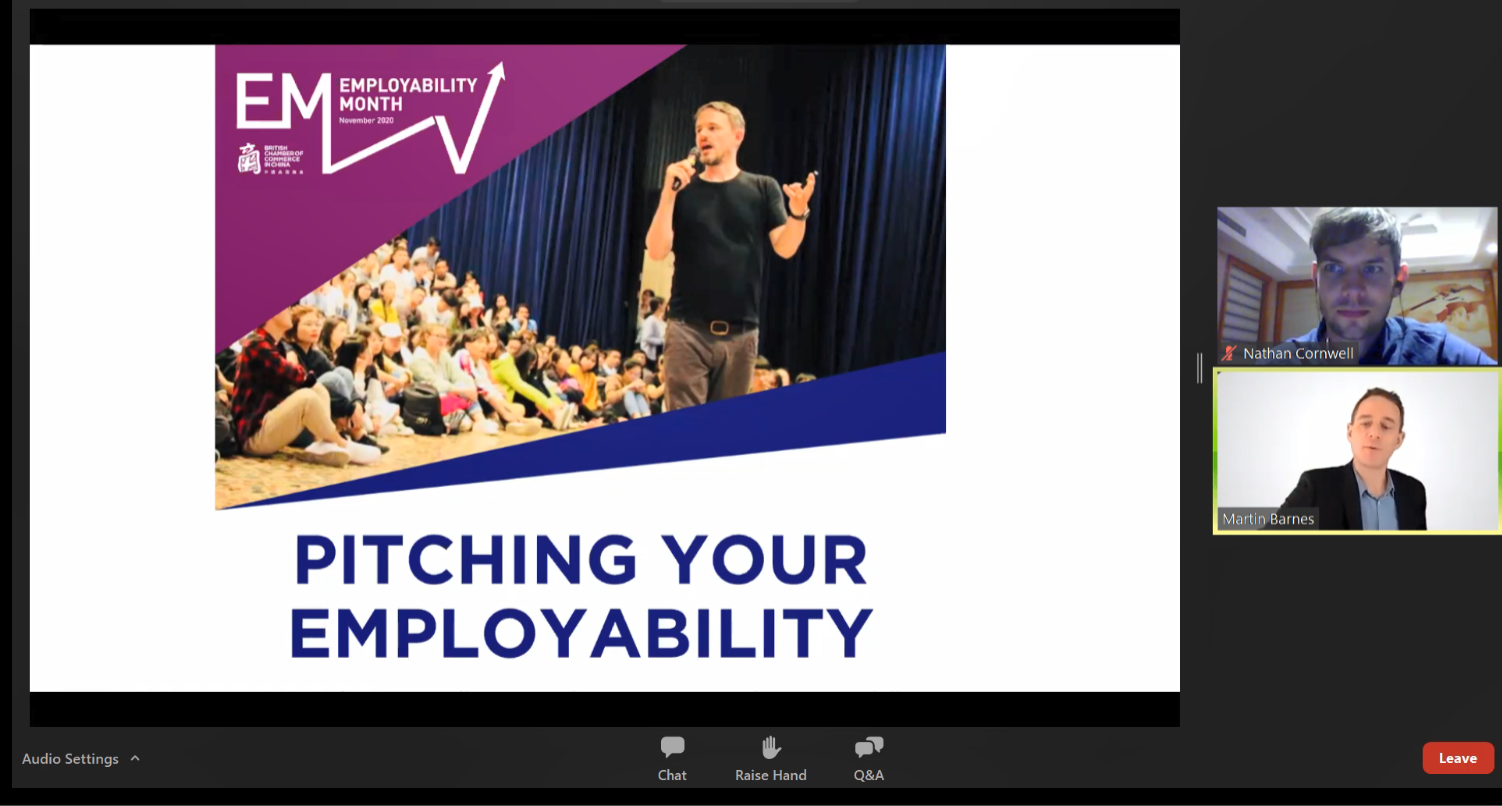
Martin first clarified the meaning of pitching. According to him, pitching means telling a story which gets results because it is useful for that particular audience. He pointed out that not every single story with every single audience would match. Therefore, in the context of an interview, the result is to demonstrate the right skills for the position and stories are the things by which you can share your skills. After that, he introduced the “3 beat mountain” structure, which can help people pitch and tell a story. When using this structure, the storyteller needs to share three things after a very brief introduction and have a call for action from there, which is a simple structure but it is a universal way of telling a story as well. The storyteller’s job is to take this structure and think about who their audience and what they want to tell them along the mountain. For example, Martin pointed out that the three things can be what am I, how do I help people and why is that important. According to Martin, when talking about what am I, which is the first beat of the mountain, the storyteller needs to catch the audience’s attention; when talking about how do I help people, the storyteller needs to show relevance; and when talking about why is that important, the storyteller needs to show the transformation; then at last, the storyteller need to call back to the beginning of the story. By doing so, the storyteller can make a link and the audience can connect all the story in their minds.
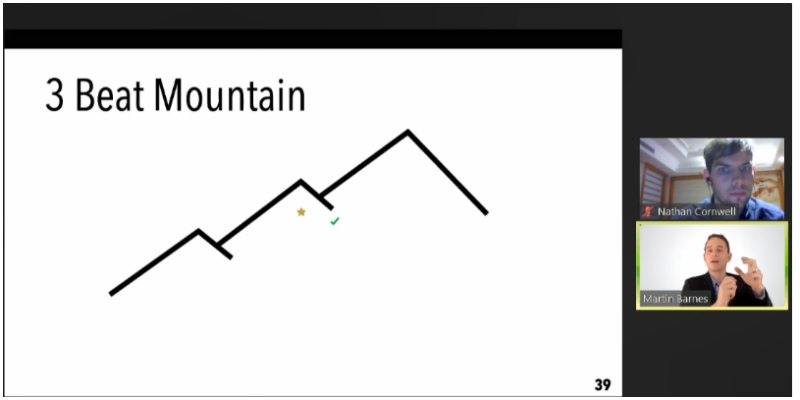
Then Martin compared pitching in a CV and the interview. He said that the CV is a list of personal achievements while the interview is really the time to pitch, to engage and to sell your skills. People should not repeat what’s on the CV verbally and should avoid listing the awards without the contexts or stories. He advised people to plant the stories through the interview process so that the employers can form a picture of who they are. Martin used the question “tell me about yourself”, which is a commonly asked question during an interview, as an example here. He said that people can use the 3 beat mountain of what (learning to x), when (during y) and wow (leading to z) and then call back to the opening by showing that they can use this skill/experience for the future. Martin then asked the attendees “what makes a great pitch?” and there were some responses from the attendees.
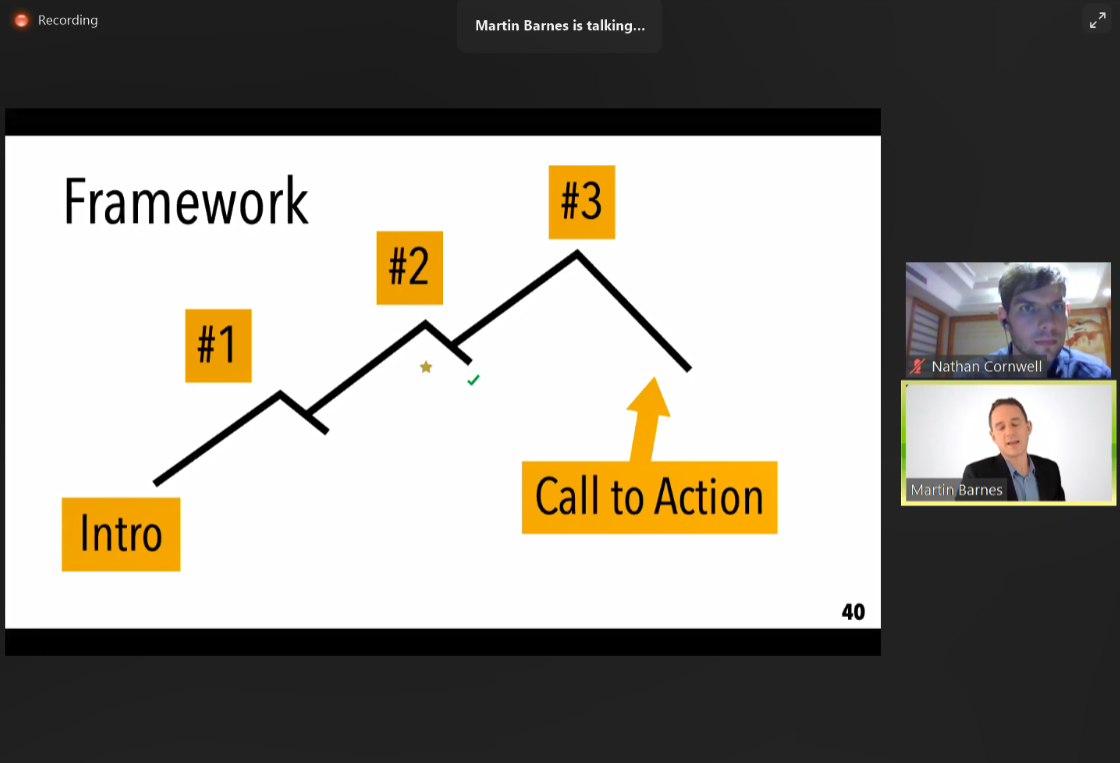
In the second part, Martin talked about focus and confidence and gave three tips on how to improve these when pitching. The first one is, stand up this can give people more energy and confidence and help people deliver a more dynamic performance. Secondly, take a deep breath before pitching to feed the body and brain with fresh oxygen. The last one is to dress to impress. A free online pitching guide is available via 8seconds2connect.com.
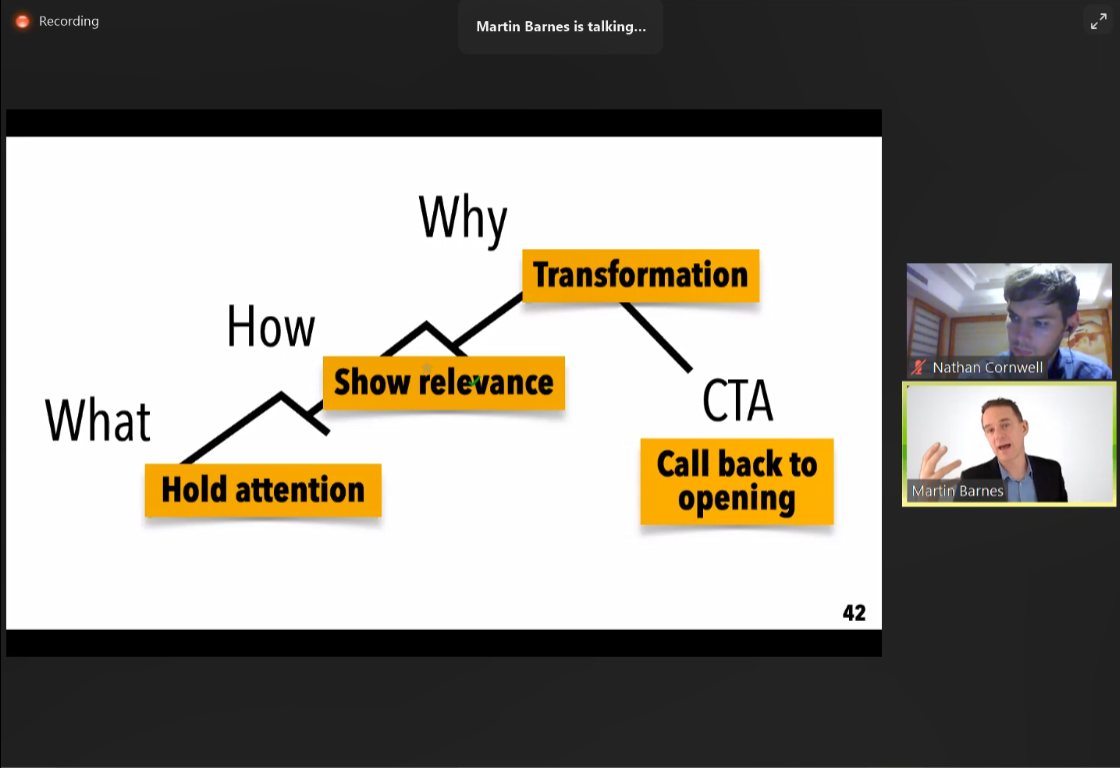
At the beginning of the part of practice, Martin asked the attendees the question “what am I going to do to improve my pitching skills?” and offered them six options including prepare, practice, process, wing it, reflect and listen. Most attendees chose practice and prepare. Martin then asked some volunteers from the attendees adopt the “3 beat mountain” structure to pitch for 30 seconds about the question “what motivates you” and asked the others to give feedback. Two Chinese students Xinran and Feng volunteered. After they finished, Martin and other attendees all spoke highly of their performance and Martin pointed out the places where they could improve in the future as well.
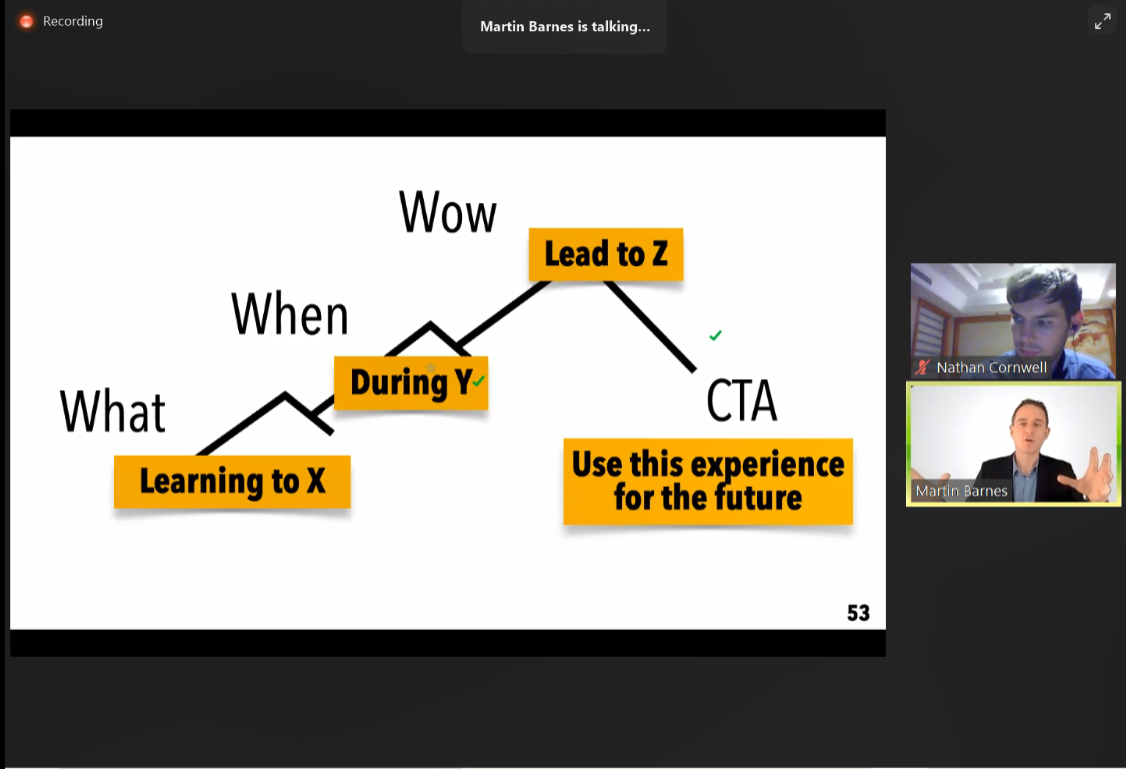
Martin also introduced an online platform that can help people practice their pitching skills called Pitcherific. This tool enables people to pick one of the best-practice templates and create a clear and convincing pitch that fits people’s time frame and to record themselves to find the best way to present their pitch.
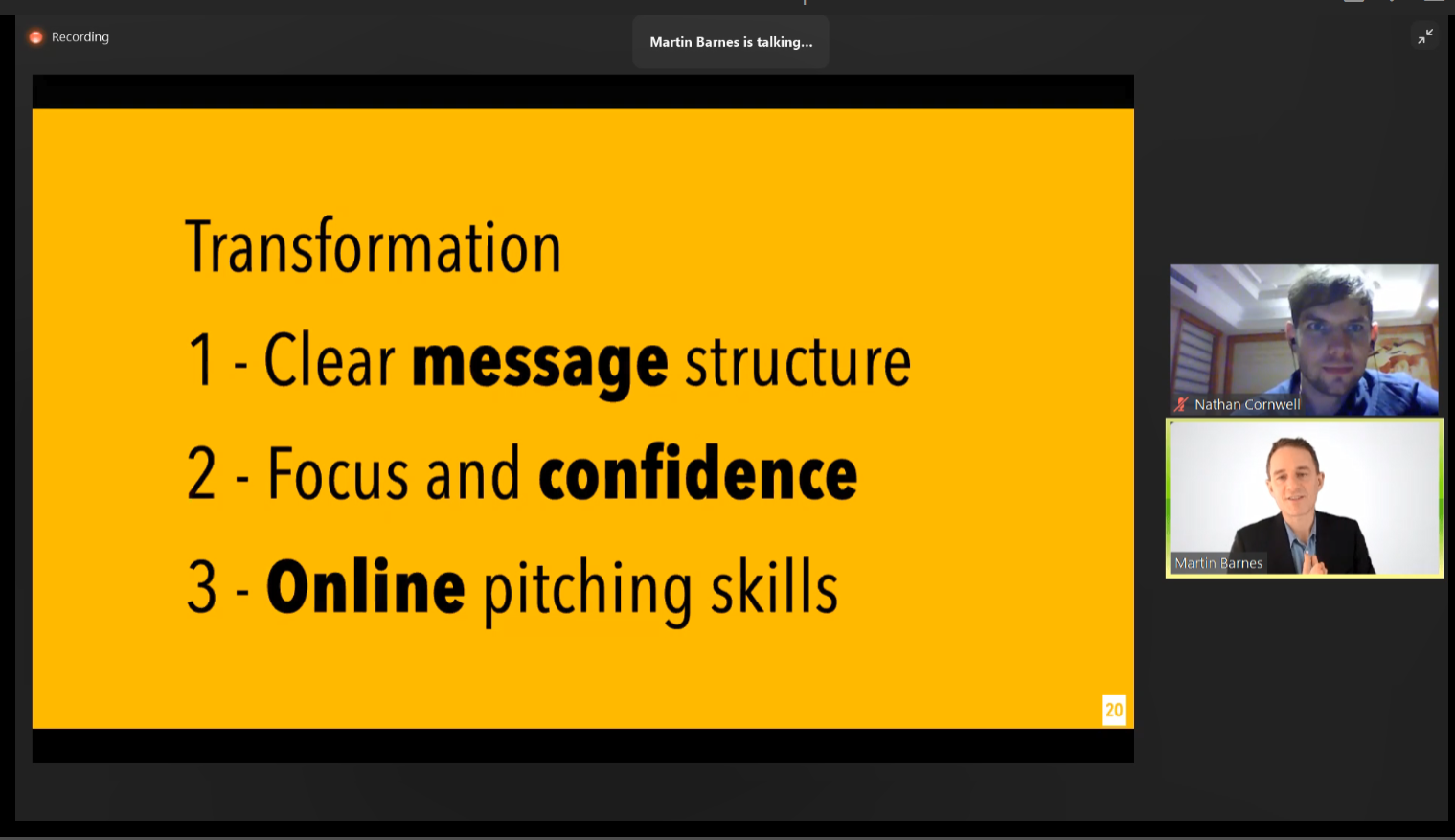
At the end of webinar, Martin summarised the main content of this highly interactive webinar. I think this webinar was helpful to almost everyone, not only those who will have a job interview, because the “3 beat mountain” structure and the tips can be adopted in other situations as well. Martin also mentioned that he is looking for a remote intern, if you are interested in this position please feel free to contact him directly on LinkedIn for more details.
